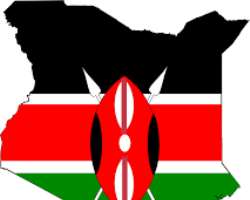What Is To Be Done About Politics Of Decaying Democracy In Kenya?

It was Nicolai Gogol that first used the phrase what is to be done, in hiscategorical intellectual reaction to the politics of decay in Russia during the feudalist system of leadership in the Russian society of 16th century, this statement is conspicuously found in all the three books by Gogol;the Cloak, the Dead Souls and then The GovernmentInspector. Gogol had borrowed this statement from a line in a poem by Alexander Pushkin. Pushkin was an Afro-Russian poet, his origin is in Abyssinia, Ethiopia. A century later both Lenin and Tolstoy wrote a lot about what is to be done in regard to the politics of disorder and decay in Russia, Lenin wrote a long essay of a hundred pages under the title what is to be done, whereas Tolstoy intensively wrote in War and Peace about what is to be done in regard to the state of spiritual decay in the world of his time. Actually, all Russian writers with an ideological bent towards socialism and liberalism in the likes of Fydor, Bakunin, Sholokhov, Chekhov, Trotsky, and vasily Grossman have severally and diversely dealt with the question of what is to be done about decay in the politics of their country. Karl Marx in his essays German Philosophy, rhetorically peregrinated about what is to be done about the poor workers of the world, this is also the same case to W W Dubois in The Souls of the Black Folks, and also the same case for Ruhiu and Mutisio in their anthology of Modern Political Thoughts in Africa, in which they anthologized an essay by kamel Abdul Nasser under the title what is to be done? I am also asking this question to the Kenyan people of my time, what is to be done about political disorder and political decay in east Africa, especially about the decaying democracy in Kenya?
The background to my question is the observation of key political eventualities that took place in the East African region between 2013 and 2017, a series of them is that elections were rigged in Kenya in 2013, the same way President Museveni used state machinery to brutally rig the elections, president Magufuli was democratically elected but later on became a ruthless dictator, Paul kagame of Rwanda terrorized the parliament to make a law which empowered him to be a life president , president Pierre Buyoya of Burundi rigged himself back to power in spite of defeat, Somalia is under tyranny of terrorist reign by Al shabab terror group , Ethiopia is ever muzzling the opposition, and Southern Sudan is broken down by ethnic wars. Sorriest of all is Kenya where today the incumbent government of Uhuru Kenyatta and William Ruto has used all type of political brutality to remain in power, they have killed, used police brutality, intimidated the opposition, divided the country along ethnic lines, monkey-wrenched electoral bodies and changed the law to favor their dictatorships amid wild demonstrations by the citizens and mass killings by the police, by the time of writing this article the police in Kenya have already shot and killed over forty un-armed peaceful demonstrators, among those killed are primary schools boys and school girls. The causes of demonstrations are absence of neutrality in the electoral body, police brutality, out-right riggings, looting of the state by the politically correct and exclusion of the youths from main-stream politics through a politics driven by uthamaki syndrome. Kenya is actually headed to a political precipice,and hence it is why I am asking about what is to be done then?
Kenyans have to go back to the fundamentals, back to the key and fundamental components of political socialization that made Kenya to become a vergevictim on a cliff of such black political volatility. Key among them is politics of patronage, clientelism and inter back-scratchingculture that was built by jomo Kenyatta. This is the politics that sired negative nationalism aka negative ethnicity in Kenya. Secondly is politics of state Corruption and political exclusion planted by Daniel Moi, thirdly politics of executive irresponsibility now being openly perpetrated by Uhuru Kenyatta and William Ruto, this is the most rotten epoch of kenya’s political civilization which has allowed a very crude political philosophy of uthamaki to thrive in the public, uthamaki is a movement in Kenya which supports the reasoning that out of kenya’s forty three ethnic communities , it is only a man from the Gikuyu community who is supposed to be the president , the uthamaki movement substantially aims to achieve its goals by use of economic crimes and political crimes, oath taking, corruption and prostitution, and any other foul opportunity available to make them retain the office of the president in their clan. Thus, the question what is to be done?
Lenin partially answered this question by suggesting revolution in the system of thought among the Russian youths. He identified literature as one of the media through which the minds of the youths could be modernized. Russian cultural revolution was all about this. Mikhail Sholokhov the author of And Quiet Flows the Don, was one of the writers that worked hard to change system of thought among the Russian youths. Yunen forum of Mao tse Tung in china had a similar idea as it did the concept of weapon of theory among most of the revolutionary ideologues like Antonio Gramsci, Nkrumah, Amilcar Cabral, Fidel Castro, Thomas sankare, Frantz fanon and Paul Freire. The key challenge to agency of literature as media of mental revolution among the youth from the cocoon of narcissistic ethnicity to the mental state of collective nationalismand class consciousness is that where can we get east African youths that can read objectively beyond the fancies of their tribes and the east African writers that are self-less enough not to write in praise of their clans or family traditions, but to write for the good of democracy and political order in Eastern Africa ?
